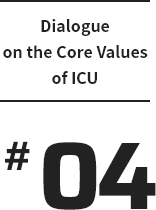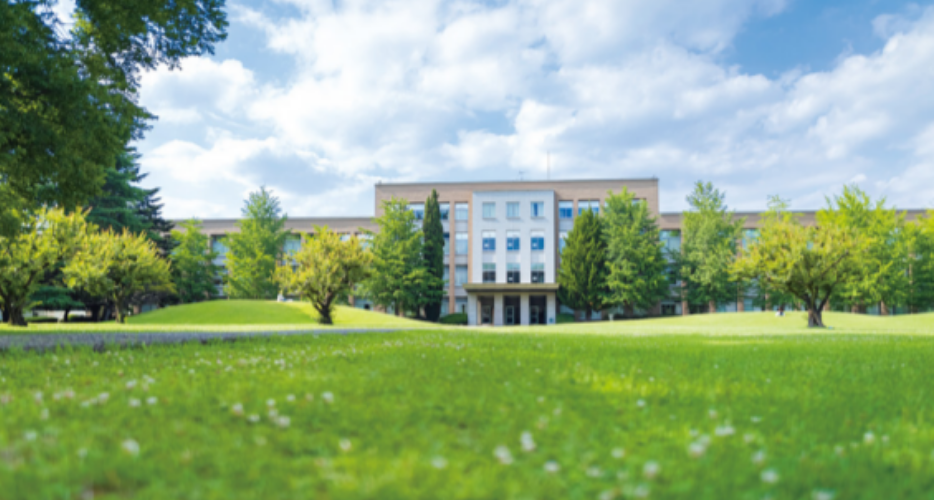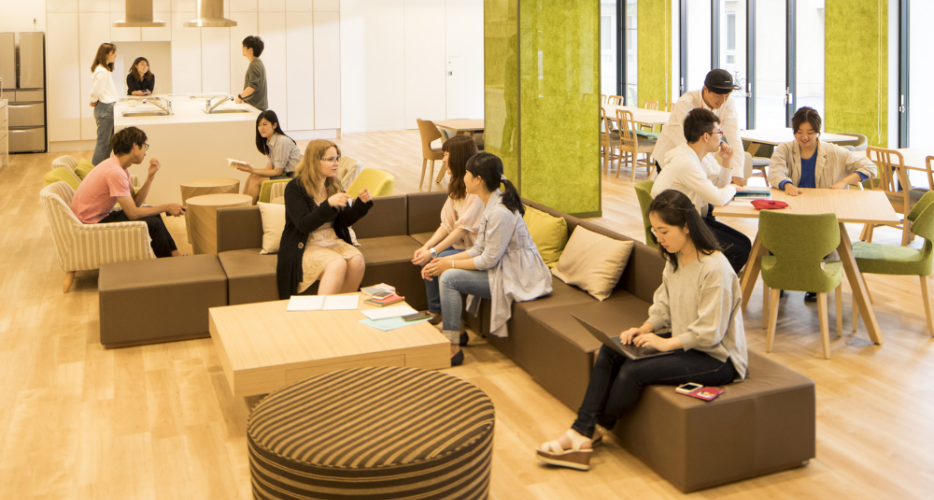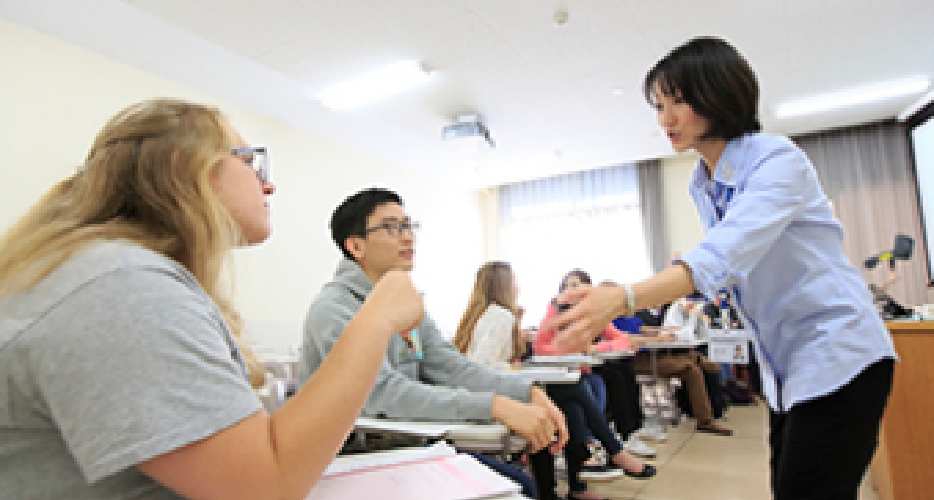
Dr. Norihiko Suzuki served as the second President of Akita International University(AIU) in Akita Prefecture until 2020 after serving as the eleventh President of ICU.
This is the record of a dialogue between ICU President Shoichiro Iwakiri and former President Suzuki.
#Global Perspective #Living & Learning #Multiligualism #common good
Criteria for a world-class institution from the perspectives of internationality and the Liberal arts
Many Japanese universities have “international” in their name, but what that implies remains elusive.
Our perceptions of “global” and “international” have been altered by the worldwide ramifications of the COVID-19 pandemic.
In this regard, there may be a need for dialogue to redefine the true meaning of an “international” university and the criteria required for an institution to be recognized worldwide.
Suzuki served at the helm of ICU and AIU(Akita International University), two universities with “international” in their names, with both implementing liberal arts education in a single college. He discussed what makes a university world-class and the requisite DNA with the current President of ICU.
INDEX
- 01 Transition in the meaning of “international” given the rise of online learning
- 02World-class liberal arts education that ICU and AIU aspire to offer
- 03Delving into the identity of ICU by comparison with AIU
- 04Keys to achieving world-class status: the common good and an open mind
- 05ICU’s mission in the social implementation of liberal arts and the challenges this presents.
Paragraph 01
Transition in the meaning of “international” given the rise of online learning
How do you define an “international” university? Criteria would include active academic exchange with universities overseas, a good number of inbound and outbound students, and alumni active at international organizations and foreign corporations; but it is difficult to describe this in a single phrase. The meaning of the word has changed with time. Iwakiri said, “When I started teaching at ICU a quarter of a century ago, the term “international” was very popular, but somewhere along the line, “global” has taken its place.”
When we look at what’s happening in the world, we tend to confront more global issues than those in bilateral relations. Iwakiri relates this to the increasingly global social structure. “For instance, the problems of economic disparity cannot be solved between two nations but need to be considered in the context of the wealthy and impoverished existing in the world. A thoroughly global perspective is necessary.”
A transition in the meaning of “international” has affected international education, due largely to the ubiquitous use of online modes of delivery accelerated by the pandemic. Suzuki said, “Before the pandemic, people moved across borders for study abroad and other purposes, but now courses are streamed around the world via the Internet. What used to be conducted in a closed classroom, is suddenly on offer to the world. The teaching ability of each faculty, and what he/she has to offer in terms of specialty are highlighted.”
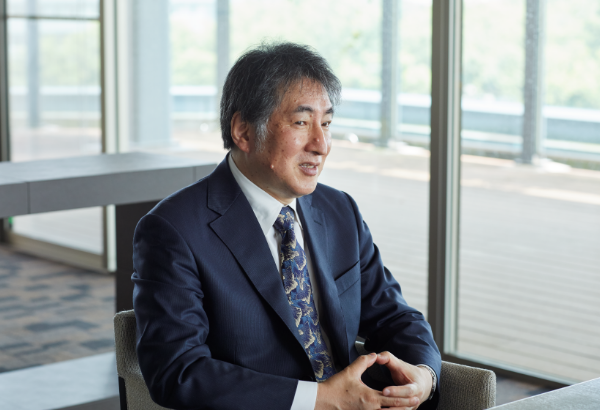
Iwakiri replied, “That is a problem we have to consider seriously. If students can take courses from any university in the world, regardless of where they are, some of them will no longer feel the need to go to a university campus to learn. As administrators, we need to offer a clear outlook about what the university has to offer. It’s not yet widely discussed, but the higher education sector may be in for a sea change.”
With the advent of 5G, use of online means will accelerate further. When we can easily connect to the Internet anywhere, internationality no longer implies the exchange of people physically moving across national borders. In this era, how do we define international learning?
Paragraph 02
World-class liberal arts education that ICU and AIU aspire to offer
Both ICU and AIU continue to emphasize the international character at the heart of their philosophies, although the meaning of the concept is changing. The other major pillar they have in common is liberal arts education.
ICU offers a major system that allows students to choose from 31 majors, not when they matriculate, but by the end of their sophomore year. They have a well-balanced range of choices across the arts and sciences, in traditional subjects in the humanities and social sciences, as well as in the natural sciences such as biology, physics, chemistry, mathematics and information science. At AIU, the Global Connectivity Program, offered as of AY2021, provides instruction in the latest technology in the natural sciences and AI along with the humanities and traditional social science subjects. Suzuki says, “This program attempts to integrate the arts and sciences at AIU by emulating the well-balanced academic fields on offer at ICU.”
The tradition in Japan that divides the arts and sciences has been questioned, with learning across academic fields arguably the norm in globally recognized education today.
Suzuki added, “The city-states in ancient Greece and Rome initially emphasized physical education and music in educating their youth, followed by mathematics. I would say that the aesthetics and mystifying nature of this subject is a starting point for liberal arts.”
In the Dialogue on the Core Values of ICU#1 between Oriza Hirata and President Iwakiri, Hirata mentioned that, at the time of his own matriculation into ICU, the President had stressed at the Matriculation Ceremony that the university would be teaching the soft sciences. In the course of this speech, the theater, literature and the arts came up as topics, but perhaps pure mathematics can also be regarded as a soft science as it may not benefit society directly.
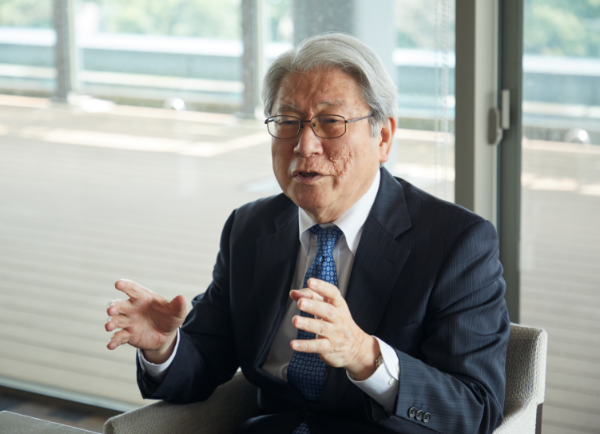
ICU has spearheaded full-scale liberal arts education in Japan, by offering a well-balanced academic curriculum that includes the soft sciences. AIU emulated this learning style when it opened its doors to students in 2004. Suzuki says, “AIU founding President Mineo Nakajima served at the helm of Tokyo University of Foreign Studies, which had moved to the vicinity of ICU. He visited us quite often before he assumed his post at AIU, to develop a basic understanding of liberal arts.”
Paragraph 03
Delving into the identity of ICU by comparison with AIU
Perhaps the greatest difference between the two institutions is that ICU has Christianity as its founding philosophy. Iwakiri asked, “Having Christianity as the spiritual pillar at ICU made it easier for us to form a community. What were some of the steps you took to build a community at AIU?”
AIU offers a well-equipped international dormitory that all freshmen are required to reside in. The university is now constructing new dormitories which, when completed, will offer a capacity, along with the existing residences, to house all AIU students.
Suzuki talked about the purpose of these buildings. “These dormitories help in creating a community, by strengthening the bond between students. I think this is vital for a university. It also gives them less of a chance to escape, practically forcing them to immerse themselves in their studies in a residential community.”
ICU has several dormitories on campus, where about 30% of the student body lives. Although the two institutions take dissimilar approaches in creating a community, a similar “living and learning” style has taken root at both schools, which may be a key to realizing a world-class liberal arts education.
The other big difference concerns language education. ICU takes a multilingual approach based on bilingualism in English and Japanese, whereas AIU concentrates on English as the single language of instruction.
With the importance of English in an ever more global society, an education that intentionally avoids use of Japanese may attract students who aspire to work in a global environment. But at ICU, the bilingual policy has been firmly in place since its foundation, with an ongoing shift to multilingualism. Iwakiri explained the advantages of this strategy.
“A psychology professor told me that a radical transformation in the structure of the brain occurs between the ages of 18 and 22, in acquiring sociality. On entering university, students learn academic Japanese, something quite different from what they used up to high school. Higher education inducts students into a new culture of academic literacy. I feel it is vital for students to acquire language abilities for academic use in both Japanese and English during this crucial period for their long life ahead.”
“I would also add that we want our international students to immerse themselves in a foreign culture, to study Japanese and see how things look different when thinking in Japanese. This would be far more stimulating than those from an anglophone environment taking classes in English.”
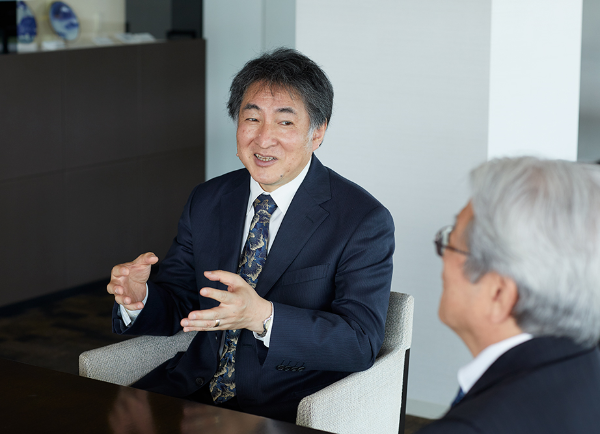
Suzuki’s response was, “I suppose the AIU founders sought to differentiate the new institution from ICU by offering all courses in English. But from the perspective of humanistic education for a Japanese person, I personally think that multilingualism in the ICU style would be ideal.”
Multilingualism is firmly rooted at ICU, a part of its identity that nurtures a broad perspective in all its students.
Paragraph 04
Keys to achieving world-class status: the common good and an open mind
What do the two administrators consider as criteria for a globally recognized university?
Iwakiri’s reply was, “What’s important is an openness to the world. Universities around the world teach and conduct research in more or less the same fields, albeit at various levels. In tackling shared global challenges, solutions that focus on the interests of a particular community would not be recognized globally, however advanced the research. Understanding the global nature of things, with serious consideration for the common good and being open to everything, is a prerequisite for a globally recognized university.”
The spirit of the common good and open mindedness, which form part of the ICU culture, cultivated in an environment where students from all corners of the world converge on campus to form a community, are the very ideas featured in the ICU Medium Term Plan to be implemented between AY2021 and AY2025.
Suzuki expressed his opinion from a different perspective. “When we think of world-class excellence, we need to recognize the dual structure with a tension between locality and globality. To know who we are, we need to understand our native country and the local environment. Only by delving into the locality can we define ourselves and develop a robust understanding of the world.”
Iwakiri notes, “With a significant number of Nobel Prize laureates and abundant cultural resources accumulating throughout our history, Japanese universities can be considered world-class to a certain extent. I am also gratified to see that current students are highly motivated to learn, perhaps more so than their predecessors.”
Suzuki talked about his experience teaching at a university in the U.S. “We included class participation in the criteria for grading students. At American universities, it’s common for students who inject energy into the class by asking good questions, for example, to receive good grades. Active participation requires preparation, which calls for a detailed syllabus that informs students what each class will cover.”
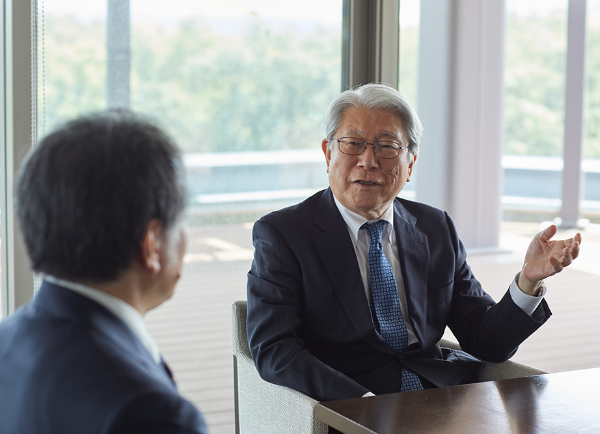
ICU introduced a full-scale syllabus at a very early stage. Comprehensive thinking about daily class management and grading policy perhaps provides hints on how to enhance the status of Japanese universities on a par with top-tier institutions in the world.
Paragraph 05
ICU’s mission in the social implementation of liberal arts and challenges
The ICU Medium Term Plan that emphasizes the spirit of the common good is subtitled social implementation of liberal arts. Iwakiri explained its objective, “Until now, the emphasis was on nurturing each student with a background in liberal arts. But in future, the objective of our education and research will be to disseminate liberal arts in society, its thinking styles and perspectives.”
The challenges in the social implementation of liberal arts are manifold, as understanding of the concept of liberal arts is not widespread in Japan. Suzuki explained why.
“To establish universities in Japan during the Meiji Era, a Japanese delegation visited Europe and the U.S. to emulate institutions of higher education. At the time, liberal arts education was implemented in schools in England and France, but Japan chose to adopt the Prussian model with specialized faculties, which remains embedded in the Japanese university system.”
Iwakiri elaborated. “To understand liberal arts properly, you need to go back to Ancient Greece. Perhaps the image of the term liberal arts also causes some misunderstanding. For most people, arts imply the fine arts, but the term also connotes technology and academic learning. This is what we need to clarify. The concept of Liberal arts is often translated into Japanese as general education, which is also why it is misunderstood.”
(For definitions of general education and liberal arts, see Dialogue on the Core Values of ICU #3.)
We confront many issues when it comes to disseminating liberal arts, but we have high expectations for ICU to stand at the forefront in spreading a correct understanding of the concept.

[To conclude]
Common values amidst diversity required for universities to be globally recognized
Many Japanese universities excel in particular research and projects on a par with top-tier institutions around the world. With an increasing number establishing liberal arts programs based on varied interpretations, we need to redefine the concept befitting current student needs. Many problems require consideration, as not all “liberal arts” programs offer a world-class education.
What then do Japanese universities need to do to become world-class institutions?
The pandemic hit amidst mounting global issues and the rallying cry surrounding the need to satisfy the SDGs. In this VUCA (volatile, uncertain, complex and ambiguous) era, we need to grasp what is happening on this planet, listen to people and engage in dialogue for the common good. By respecting others with different values, we are required to make decisions together, not individually. This attitude and the accompanying human traits are probably most important.
We also need to delve into problems together genuinely and avoid being satisfied with ideals and theories that look good on paper. We need a wholly inclusive community which acts in a way that embraces differences as a given, rather than highlighting them as obstacles, and embraces substantive diversity as the way forward. The role ICU must play here is immense.
Related Information
Sub Dialogue
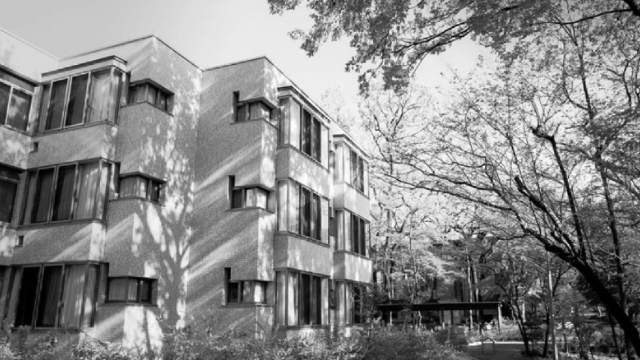
Intellectual Interaction
The living and learning community that ICU aspires to create on campus
The dialogue between these two men suggests a strong affinity for ICU, an institution they have been committed to as administrators.
Is the role of a university limited to passing on knowledge?
The pandemic has brought on new roles for universities
- Iwakiri
- When I started teaching at ICU 25 years ago, I had the pleasure of sharing a room with you during the faculty orientation retreat. During your presidency, you built Dialogue House where we are having this conversation now and other facilities on campus.
- Suzuki
- Yes. The student dormitories were of special importance to me. At the time I intended to build facilities that would house about 1500, about half the student body. I would have liked those who lived with families near the campus to live in the dorms.
- Iwakiri
- Currently the capacity of the student dormitories has decreased to about 900. Students who live with families in the greater Tokyo area tend to commute to the campus. During the pandemic, many have avoided communal living.
- Suzuki
- The ICU campus has undergone many transformations. During the health crisis, people started saying that universities do not need a campus, if their only function is to pass on knowledge. In my view, universities have another role. They provide places for contact with humanity. Perhaps we need to reconsider what a university and its campus should offer.
- Iwakiri
- ICU has always laid importance on human bonds and communication. We need to consider how to continue and develop this tradition during and after the pandemic.
PROFILE
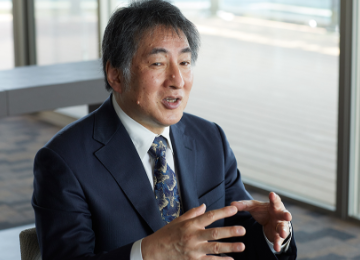
Dr. Shoichiro Iwakiri
The President of International Christian University specializes in French literature. He completed the Third Cycle and received a DEA from the Department of Science of Texts and Documents, Paris Diderot University (Paris 7). Prior to becoming ICU President in April 2020, he was Director of the Admissions Center and Dean of the College of Liberal Arts.
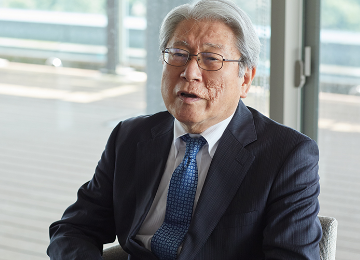
Dr. Norihiko Suzuki Former President of ICU and AIU
ICU Professor Emeritus and Second President of Akita International University Norihiko Suzuki graduated from Hitotsubashi University before acquiring a doctorate in business administration from Indiana University. He taught at an American university for 13 years before he was appointed to ICU. At ICU, he poured his efforts into various reforms such as the introduction of the major system and building new student dormitories.
Planning, and Production and Writing :WAVE.LTD


